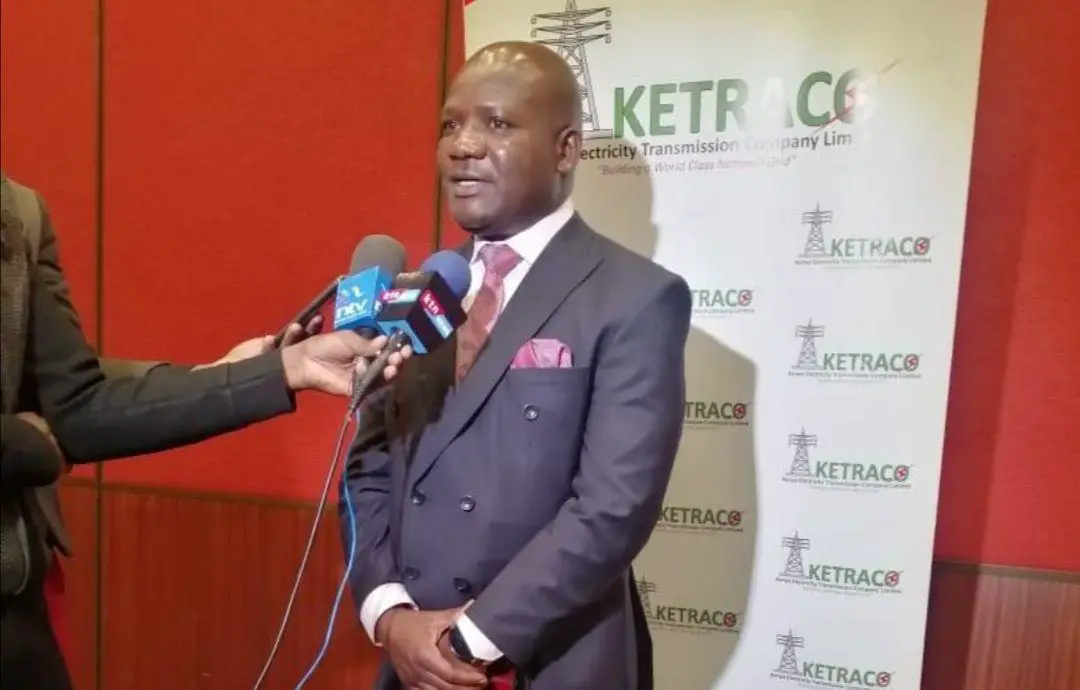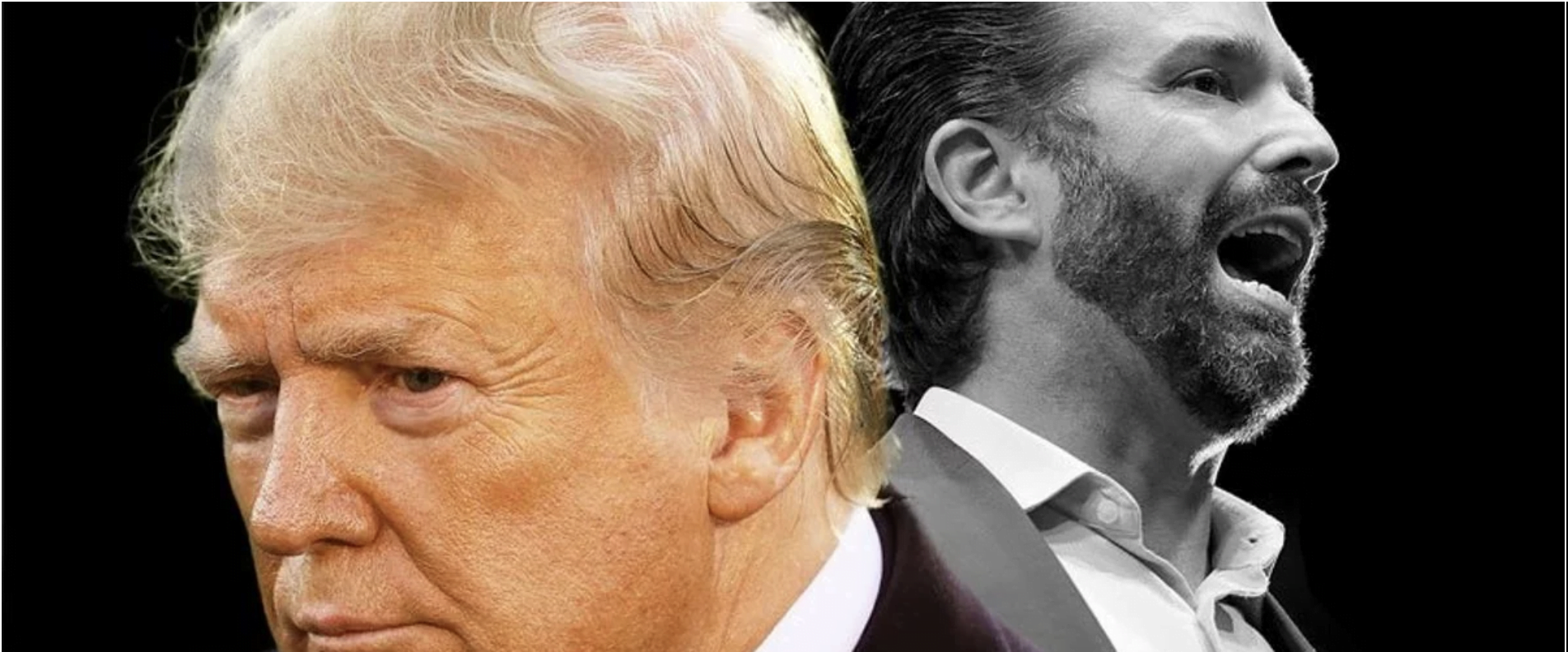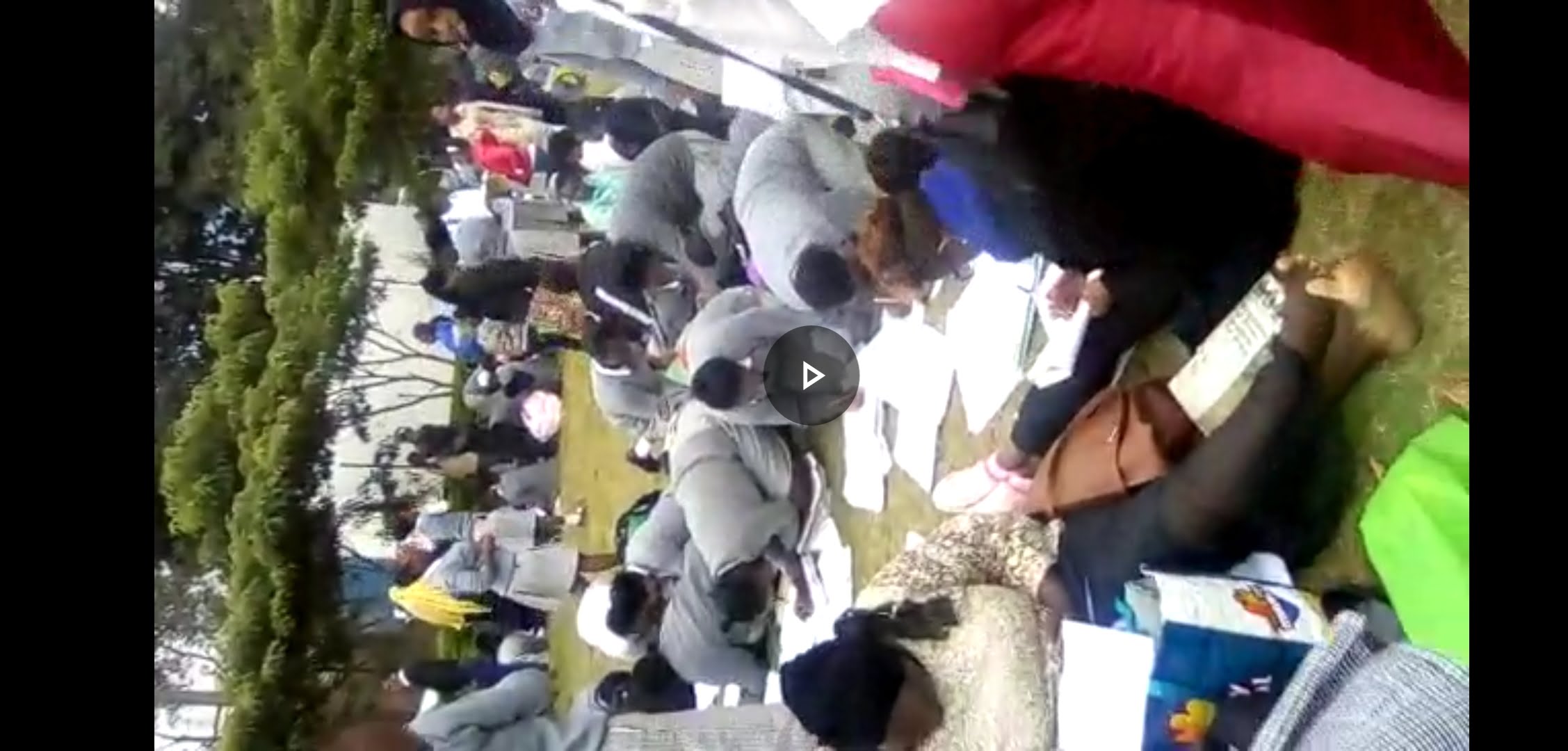
Sometime in August 2019, a well-built middle aged man in a high-end restaurant runs for dear life panting like a chased antelope, he finds his way into the toilets of the restaurant and hides.
The man was none other than the Chief Executive Officer of Kenyan Electricity Transmission Company (Ketraco) Mr. Fernandes Barasa. He was running to safety to hide from the, at that time fiery Directorate of Criminal Investigations Boss George Kinoti. The only problem is that the DCI boss wasn’t coming for him. He was at the hotel for another business and as coincidence would have it, Mr Barasa was also in the hotel and happened to spot him. Barasa later flee using the fiver star hotel’s kitchen door.
Why was he hiding?
Mr. Barasa was hiding for all the wrong reasons, or good reason, depending on where you sit in the scheme of the political divide. Nearly a year ago, the authorities unearthed a Ksh14 billion scandal at the electricity transmission agency.
Kenyans were swindled the money by the management of Ketraco through fraudulent payments disguised as real.
On paper, the money was paid to genuine landowners on whose property Ketraco put up electricity transmission lines, but detectives believe a huge percentage of the money was swindled by officials at the State agency.
Detectives say one case in Kisaju, Kajiado County, where a landowner was paid 10 times more than the value of his land, mirrors hundreds of others during the construction of the Mombasa-Nairobi transmission line.
It was through a collusion between managers at Ketraco and the landowners that this scam was pulled-off, cnyakundi.com has learnt.
Most of the payments were wired back as kickbacks to the CEO and his close allies at Ketraco.
‘Some of the land were bought by senior managers at Ketraco, who then went forth to sell the land at extremely high prices, this also explains the delay in some payments’, a source who wrote to cnyakundi.com stated
As reported numerous times by the local media, land compensations in the mega projects undertaken in recent times has been the cash cow for senior managers in such government bodies as Kenya Railways Corporation (SGR line collusion with National Land Commission), Kenya Pipeline Company (construction of the pipeline), National Youth Service just to mention a few.
In that cold February 2019, DCI Boss Kinoti confirmed that indeed the police intelligence body was investigating various transactions involving the Mombasa-Nairobi line that Ketraco had built.
An internal audit, by Ketraco, on the project indicated that the Tsavo-Embakasi phase was delayed by four years and six months, and that these delays had “a huge cost impact to Ketraco as the contractors claimed their overheads, idling equipment and manpower, stoppages, acceleration, mobilisation and demobilisation”.
To worse matters, the supply lines and sub-stations were vandalised even before they were completed, and the internal audit found that a transmission line with an installed capacity of 950MW was only evacuating 20MW, a two-per-cent capacity.

Auditors noted that there were no standard compensation rates for limited use of land, thus giving officials a chance to negotiate different payments for similar land.
Documents from the Ksh14.2 billion scandal showed that that detectives have zeroed in on a test-case in Kajiado, where a landowner was paid Sh35.6 million for 8.4 acres of land. The market value of the land, detectives note, was Sh4.5 million.
Initially, the then Ketraco managing director, Mr Joel Kiilu, had written to the landowner telling them that the wayleave will traverse only 8.5 acres, and that the value of land in Kisaju was Sh1.8 million.
“The compensation amount will, therefore, be Sh4.59 million, based on the acreage affected by the power line,” Mr Kiilu said in the letter dated February 20, 2013.
But the owner argued that he intended to sell the land to his employees at a cost of Sh500,000 per eighth of an acre. At the time, the land had not been subdivided and the property was still in his name as a single unit.
Investigators say Ketraco allowed the landowner to carry out his own valuation of the property, and that three officials at Ketraco “conspired” to pay the hefty amount.
Ketraco’s then land economist, Ms Salome Munubi, in a letter dated October 28, 2013, told the managing director to pay the amount indicated by a valuation report undertaken “on the instruction of (Ketraco).”
“This was not true as the valuer had been instructed by the owner of the land,” an investigation brief revealed.
A Nairobi firm commissioned by Ketraco had put the value at Sh1 million per acre, but the parastatal’s officials allowed the owners of the land to bring in independent valuations, which pushed the prices to between Sh2 million and Sh2.8 million an acre.
Moreover, the Ketraco land economist had told the MD that the plots “had been allocated to members”, but minutes in our possession indicate that the deal had not been sealed between the transport tycoon and his employees.
Auditors had also noted that another company was paid Sh72 million with no paperwork or valuation of its land in Kajiado.

A running thread
The Ksh14.2 billion scandal is not the only shocking scandal that has occurred at Ketraco. There are other thefts at the govt agency, coupled with those at KPLC that has made the cost of electricity high for Kenyans.
An analysis by renowned economist David Ndii showed that as at last year, Ketraco must have lost over Ksh150 billion.
“Ketraco is a bigger channel of budget plunder than the National Youth Service (NYS) by far. I estimate KSh 150 billion was stolen through transmission lines budget,” Ndii stated in his article titled, “highway robbery and sex toys: Plunder by the numbers”.
Moving on, Ketraco CEO was also questioned over the 435-kilometre Loiyangalani-Suswa transmission line where different figures were given as construction costs.
Ketraco said Sh28.9 billion has so far been spent, contradicting a March 2018 figure it gave to the committee of Sh30 billion.
In March last year, the National Assembly’s Energy committee directed Ketraco the CEO to harmonise the figures given by the electricity company, the Treasury and the Ministry of Energy.
Everything went silent afterwards.

Having booked its name in the long list if govt agencies that are embroiled in big thefts, Ketraco is said to have made payments of around Ksh6.3 billion in June 2018.
This is part of the scandal that forms the Ksh14.2 billion one.
In all the thefts, Mr Fernandes Barasa has continued to stay in office. A source told cnyakundi.com that he shares the loot with the second in command.
‘Huyo mtu anapeananga pesa kwa mkubwa wa Rift Valley, unaelewa. Hata kuna plans ya kutumia pesa kufanya campaigns za kupinga BBI’, the source stated.
Fernandes Barasa is a crook who should be mentioned alongside the Kenya Power and Lighting Company Plc Mafioso who have saddled Kenyans with high electricity bills through theft and rigging of systems, fraudulent tenders, and promotion of poor workmanship.
Corrupt Accounts
In 2016, then as the chairman of the Institute of Certified Public Accountants of Kenya (ICPAK), Mr. Barasa stated in bold terms that the institute would continue deregistering accountants who were mentioned in the looting of public funds.
“As ICPAK we don’t support any of our members participating in economic crimes,” he said.
He at that time revealed that the institute had so far deregistered over 100 members for various reasons.
Recently, we reported how ICPAK was struggling financially. It is easy to tie it to an MD (Barasa) who was there two years ago.
When will Mr Barasa be deregistered from ICPAK?

Questions
Since this case has an angle of economic sabotage, where has the DCI reached with investigations?
Why is Fernandes Barasa, a man who is clearly corrupt, owing to him fleeing an encounter with the DCI boss still I office?
Shouldn’t Uhuru Kenyatta crap the whip since this is a guy who colludes with Tangatanga to sabotage his agenda?
Send more information, send to [email protected] or Whatsapp 0710 280973.
















































